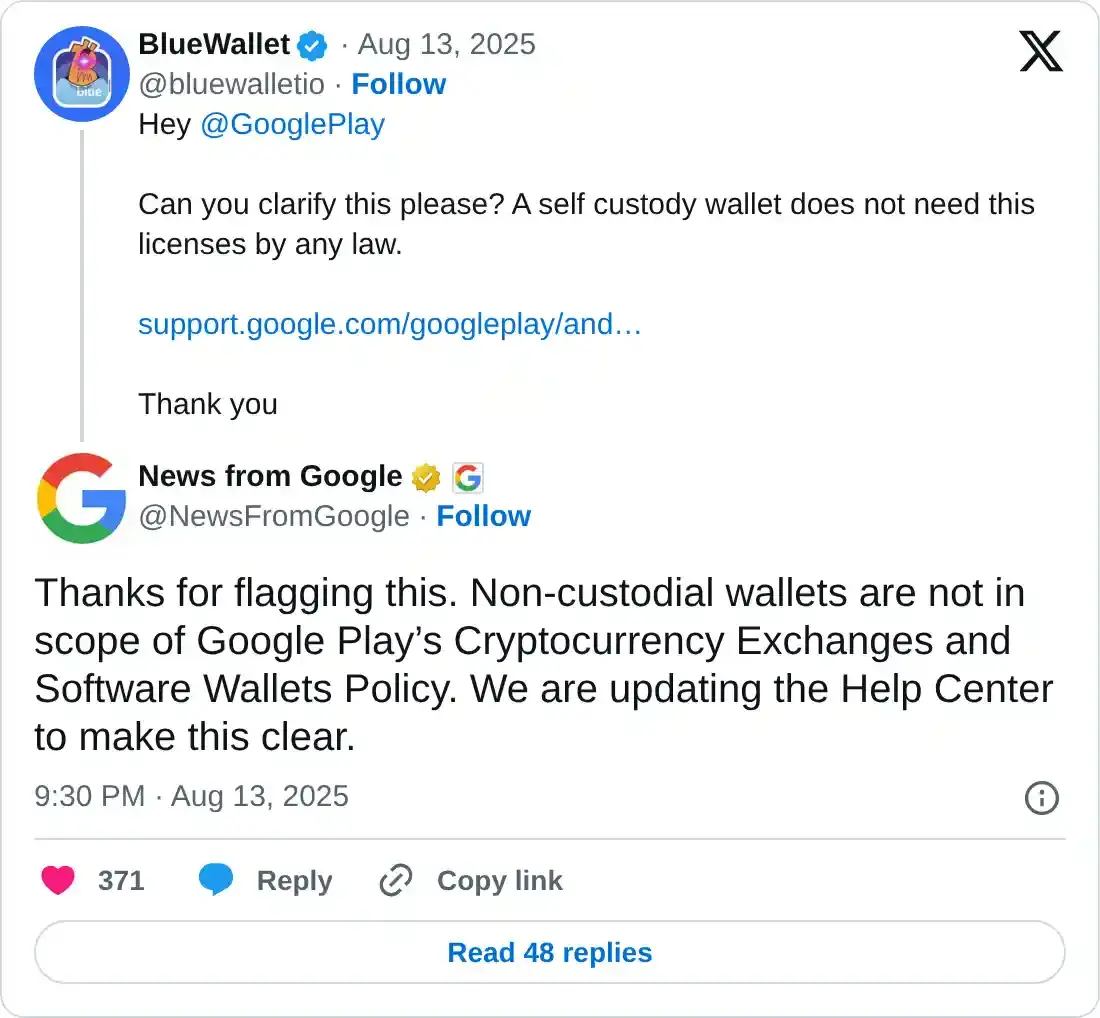Google clarifies non-custodial wallets not part of recent ban on unlicensed crypto exchanges and wallets
- Google clarified in a comment on X that its new crypto policy does not extend to non-custodial wallets.
- Google Play earlier introduced a policy that restricts unlicensed crypto exchange and wallet apps from listing on its platform.
- The guideline cuts across 15 jurisdictions, including the US, EU, and UK.
Google Play released a policy statement on Wednesday, requiring crypto exchange and wallet developers to register with regulatory agencies before it will list their apps on its platform. The company added that non-custodial wallets do not fall under the new policy.
Google Play set to restrict crypto exchange and wallet apps without proper licences
Google Play will require crypto exchange and wallet developers to hold regulatory licenses before it will publish such apps on its platform, according to a statement on Wednesday.
https://support.google.com/googleplay/android-developer/answer/16329703
The new policy is tied to 15 jurisdictions, including the United States (US), the United Kingdom (UK), and the European Union (EU).
“Cryptocurrency exchanges and software wallets can only be published [...] if the app complies with local laws and industry standards,” the company stated.
The move initially sparked panic across the crypto community, but Google clarified in a comment on X that the new policy does not extend to non-custodial wallets, spreading a sigh of relief.

In the US, developers are required to register with the Financial Crimes Enforcement Network (FinCEN) as a Money Services Business or with a state as a state money transmitter. Google also mentioned that developers can acquire the license from a federally or state-chartered bank.
In the EU, exchange and wallet providers must secure a Markets in Crypto Assets (MiCA) license from a “relevant national competent authority” to operate as a crypto-asset service provider (CASP).
Google also mandates that developers register their apps under its App Content section, declaring them as crypto exchanges or software wallets in the Financial Features Declaration.
However, it permits developers that are targeting locations outside the countries in the policy to continue publishing their wallet and exchange apps on its platform.
The move reflects the growing pressures surrounding regulatory clarity for crypto, amid efforts from top agencies, including the US Securities & Exchange Commission (SEC), to establish proper guidelines for digital assets.
Other regions where this policy applies include Canada, Switzerland, the United Arab Emirates (UAE), and Japan, among many others.



